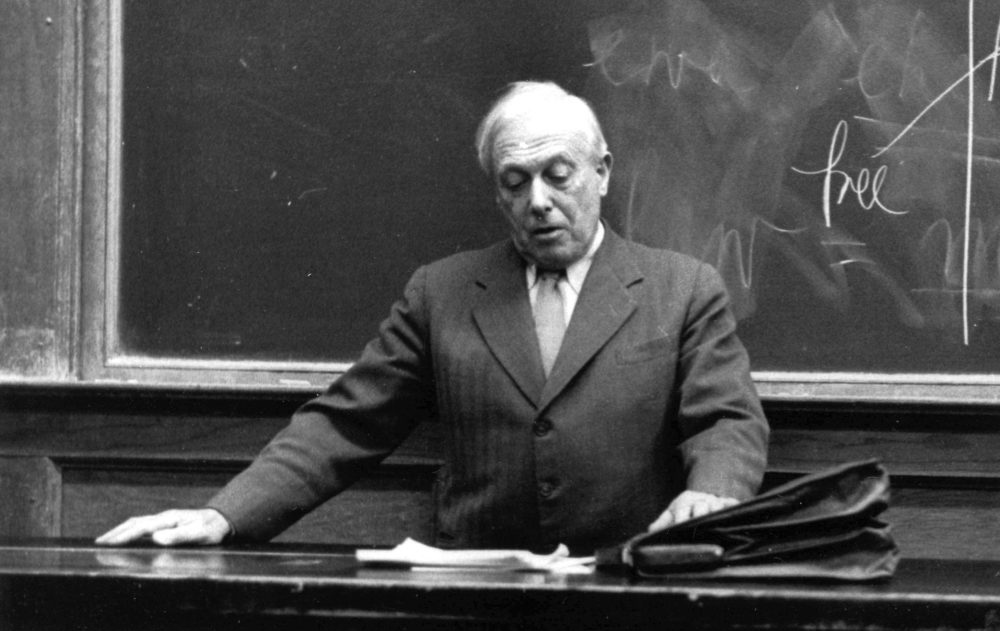Volume 30: Peace Corps (1966)
Three 1-hour lectures.
And if you go to India and serve two years, it would be foolish to think that the fruits of what you are doing can be seen after two years. It cannot be seen after four years.
You know when it could be seen? If the people with whom you have lived will tell their grandchild that one day this grandchild should go to the United States, and look it over what this queer country was from which such a plant had arrived, then you would be successful.
—July 15, 1966

In this series of lectures, Rosenstock-Huessy exposes one major barrier to peace defined by his “law of technology”—namely, that each advance in technology shortens the time necessary to act in space, and so expands our geographic boundaries. The activities of industrial societies bring them into direct contact with all parts of the world, and this rapid contact often destroys vital aspects of other cultures.
He suggests that a different kind of contact—one consciously undertaken to be long-term, unobtrusive, and unrecognized—could work as an antidote to the increasing speed of technological change and its effects on older societies. Service in the Peace Corps is “unrecognized” in that members volunteer their time; it is just such unrecognized voluntary service that can make an impression on the people served, an impression that lies fallow, but may bears fruit several generations later.
